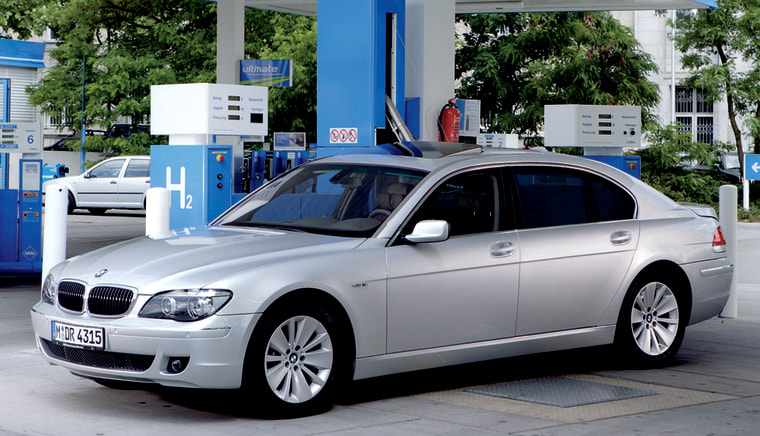The chief executive of Germany’s Linde Group sees more than 6 million hydrogen-powered cars on Europe’s roads by the end of the next decade as consumers seek to cut pollution and avoid high oil prices.
“This is a conservative estimate,” Wolfgang Reitzle told an automotive engineers conference here.
There are currently around 500 hydrogen vehicles worldwide, according to Linde.
The head of the world’s largest industrial gases group urged politicians to be more active in long-term planning for a greener future with hydrogen, which emits only water vapour when burned.
“Utopias can become a reality if certain people want it,” he said in his speech Tuesday.
Linde, which has global revenues of some $15 billion, inaugurated on Monday a new hydrogen centre, which has a filling station, technology test centre and training centre, near Munich at a cost of 3 million euros, as it aims to position itself for growth in sustainable mobility.
The group is also working on producing hydrogen from regenerative sources -- or “biohydrogen” -- through biomass conversion, instead of through the conventional process that uses fossil fuels such as natural gas.
Reitzle said it would be necessary to spend around $4 billion to build a hydrogen infrastructure of 2,800 filling stations for the European car market, but high oil prices would eventually offset the cost.
With petroleum consumption in developing countries set to rise in line with economic growth, the trend towards higher oil prices would continue, he said.
“If every person in China were to enjoy the same standards of life as in America, then some 81 million barrels of oil more would have to be produced every day in the world -- over three times as many as all OPEC countries produce combined,” he said.
He urged German automotive companies to be at the forefront in developing ways to integrate the alternative fuel into future cars.
“It would be a shame if Germany were to sleep through a trend in hydrogen technology the way we slept through hybrids,” he said.
BMW’s head of powertrain development, Klaus Borgmann, reaffirmed the carmaker’s belief in the potential for hydrogen to reduce carbon dioxide output.
“It combines a high energy density and low emissions, and that’s why we think it’s the trend going forward,” the BMW executive told reporters on the sidelines of the congress.
BMW is set to roll-out a 7 Series luxury saloon equipped with a hydrogen combustion engine in April. Its long-term goal is to eventually offer hydrogen motors in all of its cars.
